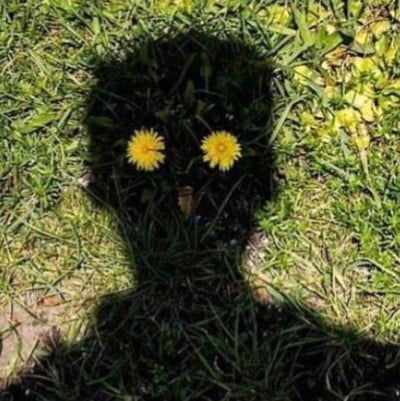Yeah, it’s Cracked.com, but humor me and give these two a read. I think on these quite a bit, even after many years.
Explains much as to how we humans act towards one another:
https://www.cracked.com/article_14990_what-monkeysphere.html
How the hell Trump supporters even exist:
https://www.cracked.com/blog/6-reasons-trumps-rise-that-no-one-talks-about
I read the first one. It was a very interesting read.
The guy who wrote those is very insightful. I also like his writing style. Thanks for sharing!
Wow excellent picks. Read both of these and enjoyed the perspective. Thanks for sharing!
Huh, these are really good! I admit I definitely didn’t see people born into rural poverty the same way I saw people born into urban poverty. That gives me a lot to think about!
Like 75% of my basic training division was either inner city poverty escapism or rural poverty escapism.
Ironically that became the uniting force of those people, something they could understand when everything else about the person is different.
It’s too bad they laid off all their good writers about five years ago. At least we got Behind the Bastards out of it!
To be fair, you have to have a very high IQ to understand Blue’s Clues. The humour is extremely subtle, and without a solid grasp of theoretical physics most of the jokes will go over a typical viewer’s head. There’s also Blue’s nihilistic outlook, which is deftly woven into his characterisation- his personal philosophy draws heavily from Narodnaya Volya literature, for instance. The fans understand this stuff; they have the intellectual capacity to truly appreciate the depths of these jokes, to realise that they’re not just funny- they say something deep about LIFE. As a consequence people who dislike Blue’s Clues truly ARE idiots- of course they wouldn’t appreciate, for instance, the humour in Blue’s existential catchphrase “a clue a clue,” which itself is a cryptic reference to Turgenev’s Russian epic Fathers and Sons. I’m smirking right now just imagining one of those addlepated simpletons scratching their heads in confusion as Traci Paige Johnson’s genius wit unfolds itself on their television screens. What fools… how I pity them. 😂
And yes, by the way, i DO have a Blue’s Clues tattoo. And no, you cannot see it. It’s for the ladies’ eyes only- and even then they have to demonstrate that they’re within 5 IQ points of my own (preferably lower) beforehand. Nothin personnel kid 😎
☝️ This comment changed my life 🙏🙏🙌
Can this comment become a legendary copy pasta of lemmy?
Blues Clues and “Scott’s Tots”. High IQ required or don’t even bother
Nice Rick&Morty copypasta you got there.
Why can’t they be of higher IQ than you?
And why 5 points, doesn’t communication gap theory push for 15?
I dislike 3 digit numbers
You fooled me, well played sir.
Thank you, glad this joke landed.
I like no-digit numbers best
Typing out the phrase “ninety-four IQ ladies only” in order to satisfy both conditions
Bold of such a casual watcher to opine on her motivations.
If you had actually been paying attention, each clue represents one of the 12 arcana given context by the way it is revealed, each episode being a tarot reading that gives depth and context to her character.
A true fan would watch in order, and would discover each season clearly describes the fools journey with a reading for each step - at that point it just. It then repeats, revealing more of her backstory each season
I’ll give the broad strokes, since I’m sure that’s all a casual viewer like you is interested in.
Blue was born as the deity of a small tribe on the coast of modern day France. She loved her people and worked for them tirelessly, and they loved her as she lavished them with bountiful harvests and artistic inspiration. Her people were kind and righteous, creating beautiful sculptures and cloth that they traded generously. Then the sea people attacked.
It’s unclear who they were, but her people were slaughtered and enslaved, her power slipping away, for she had given back all her people gave her, not considering her own needs. Slowly they died out, and knowledge of her name slowly died out.
Fading and in desperation she bound herself to a place, a cave in modern day Paris. Her heart broken by loss, she changed in those dark centuries. Her presence still brought fortune and so her former people’s land was taken by others, but she no longer had love in her heart. She compelled them to bury their dead in the caverns under the city, where she feasted upon souls of the dead for generation after generation. But none knew her name, and so she barely was able to sustain her existence.
At the advent of WWII, knowledge of the occult reached a peak. The Nazi leadership heard of the abnormal luck of the city, and so made a deal with the French - they only wanted access to the city without revealing their goal.
The Nazis took the city, and drove the resistance down into the catacombs, giving them an excuse to seek her out.
They succeeded, and they found her. She was almost feral at this point, but after heavy losses they managed to imprison her in a relic, an urn containing scraps of bones of her people. On this urn, they engraved an inscription, a binding to a single person. That person would gain eternal youth and funnel power to her, but they misunderstood what she was - in effect, those bound to her died quickly.
The relic was captured at the end of the war, and ended up in Hollywood along with many other odds and ends. After several high profile deaths, they discovered that attention from children could sustain the needs of this unnamed being. By destroying their potential, a little at a time, the host would not age or be drained by the relic.
What no one expected was how well this would scale. The fallen deity known as “Blue” has swiftly recovered, and there’s many fan theories about what this means.
And just to spell it out for the slower among you, this is a clear metaphor for capitalism, the effects of the industrial revolution, and the how in an effort to make children subservient , we reduce the future prospects of everyone, including those at the top
Unironically Deus Ex, it’s full of cookie-cutter crazy conspiracy theories and references, but it introduced me to the literary genre of Cyberpunk and it’s surrounding culture back in the day. If it wasn’t for it, I probably wouldn’t be so critical of modern consumerism and corporate culture. It helps that a lot of the game’s social commentary remains very topical twenty years later, they simply don’t make games like this anymore.
Just started the Fallout series a few months ago(3, now into 4) less neon but definitely highly critical of corporations’ soullessness, consumerism, vanity and all other things that will disappear when important things happen. Incredible consistent aesthetic and feel.
If you’re already liking 3 and 4, then your head will explode whenever you decide to give New Vegas a try.
I’ve heard that consistently. Love going into games blind, never even saw as much as a trailer for fallout before jumping in. Heard Vegas was the bomb, enjoying 4 for what it is now.
The Truman Show fucked me up as a child
Yeah, we all saw. Hope you’re doing better now though, Mr. Burbank.
One of Jim Carrey’s best movies
What’s so fucked up is how well that simulated world thing matches the ideas coming out of my own head
Mr. Robot turned me into an introvert
geeknerdIt made me a lot more aware of how mental disorders & addiction can present
“The Selfish Gene” by Richard Dawkins
Daft Punk’s 1997 “Homework” album
“The Atomic Cafe” 1982 documentary film
Edit: Vonnegut, the far side and Calvin and Hobbes for making me feel like I’m not crazy and most people are peddling a tremendous amount of bullshit.
The Selfish Gene changed the way I see life itself. That and The Blind Watchmaker. I also love Unweaving the Rainbow.
Agreed on the Selfish Gene.
I started on Unweaving the Rainbow but didn’t make much progress.
Dawkins can be a proper tool, but at least that book was quite interesting.
I read Asimov’s Foundation series of books when I was 14 or so, and it made me a lifelong science fiction fan.
The Hubble Deep Field image struck the first major blow against my childhood indoctrination in young earth creationism.
I had a similar experience but with a book about Dinosaurs that contained scientifically accurate eons, etc.
I started to piece together that while we might not be 100% correct all the time, YEC doesn’t even have an alternative. They just try and debunk evolution but have no scientific method/knowledge that proves they’re correct.
Where’s all the geological science that shows a 6000 year old earth? None. There should be competing theories, but instead it’s just “you’re wrong, trust me bro.”
Midnight Gospel
They Thought They Were Free. Book caused me to reevaluate exactly how politics at individual and social levels happened and how fascism works without any individual being inherently “evil.” Class politics and interests followed closely behind to explain how evil can arise among populations that all consider themselves “good people”
"This separation of government from people, this widening of the gap, took place so gradually and so insensibly, each step disguised (perhaps not even intentionally) as a temporary emergency measure or associated with true patriotic allegiance or with real social purposes. And all the crises and reforms (real reforms, too) so occupied the people that they did not see the slow motion underneath, of the whole process of government growing remoter and remoter.
Honestly, I see this text often quoted form the book but I don’t find it super useful as a way to understand fascism. The steps and reforms were all taken for a reason and people agreed with that reason, even the apprehensive agreed enough to stay seated. I think this “separation” isn’t the best thesis out of this book, because the Nazi Party didn’t shift too much in terms of popularity throughout these shifts, except to grow more popular during wartime. The government promised something and many accepted those conditions or at least lent moral license to the achieving the goal and were unwilling to oppose the conditions.
Fascism is Liberalism when and where Liberalism fails to accomplish it’s promises and must consume the people and stuff at the periphery to achieve its goals. A government is just as “far” from its people when it is doing good things that it’s people desire as when it does bad things.
I love the book but have major issues with the ideological assumptions, mostly surrounding fascism’s relationship to its people and to other ideologies
The Illustrated Man by Ray Bradbury, it’s a collection of short stories with a light meta story connecting them. The man feared technology, thought it would ruin society. It was written in 1951 and some of his thoughts on how technology could ruin people are eerily spot on.
The “smart home” story in particular is oddly prescient.
Heinlein’s “The Door Into Summer”. Both beacuse it reminds me that I might never find what I’m looking for; and because it taught me to never give up on looking, anyway.
I was bored on an airplane a while back and discovered a Japanese movie adaptation of A Door Into Summer: https://www.rottentomatoes.com/m/the_door_into_summer
It’d been 25 years since my mom read the story to me so I can’t tell you how accurate the adaptation is but it hit the parts I remembered.
Drowning in a world of marketing and political slogans, this books helps me them how they attempt to persuade me. It also opened up a whole new interest in rhetoric.
There have been several. I’ll pick Eric Berne’s book Games People Play.
I immediately recognised a few that I had played and, having been ‘called out’ on them by the book, it did lead me to stop and behave more constructively.
Can you give an example? Sounds interesting.
The ‘original’ game: Why Don’t You - Yes But was the one that I first recognised in myself. There are plenty of other examples on that website, but as the page says, it doesn’t have the full explanation and context.
Thanks!
It’s a bit early to say if it’s life changing, but Hi Ren made me reassess my thought patterns and negative self talk in ways therapy never could, which is pretty damn powerful for a musical performance.
How did it pull that off?
No health care professional ever told me that depression can be something that’s just a part of who I am, and that maybe there is no getting rid of it. Rens message in the video feels so genuine and real that instead of passing it over as just another piece of pop culture, I stopped to really listen and think about what he’s saying about managing your darker tendencies and learning to live with them. The song has maybe helped me accept myself a bit better, but as I said, it’s still a bit too early to call if it’s an actually permanent and useful effect.
Hi Ren is one of the only songs I will ever acknowledge as brave.
Mildy related, have you seen Sucker Punch? You may appreciate it more than the average movie goer (but it could also be off putting)
Haven’t seen, will add to the shortlist. Thanks for the recommendation!
Whats your home life like? Hows your sleep?
I myself dont associate with any of the personal struggles discussed in ‘Chalk Outlines’ but dammit if it doesnt make me feel something, almost tears every time.














